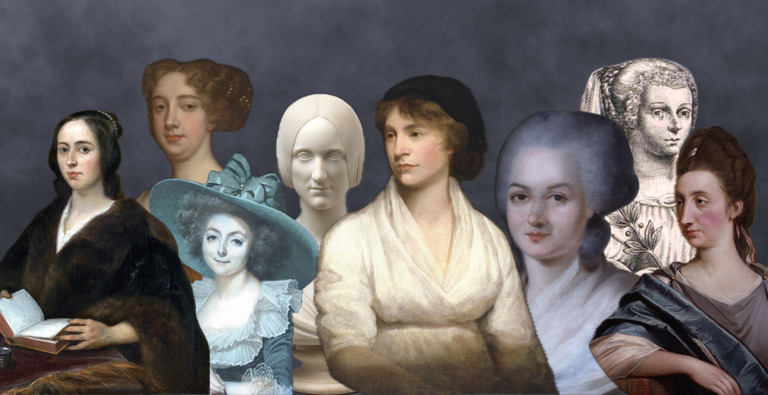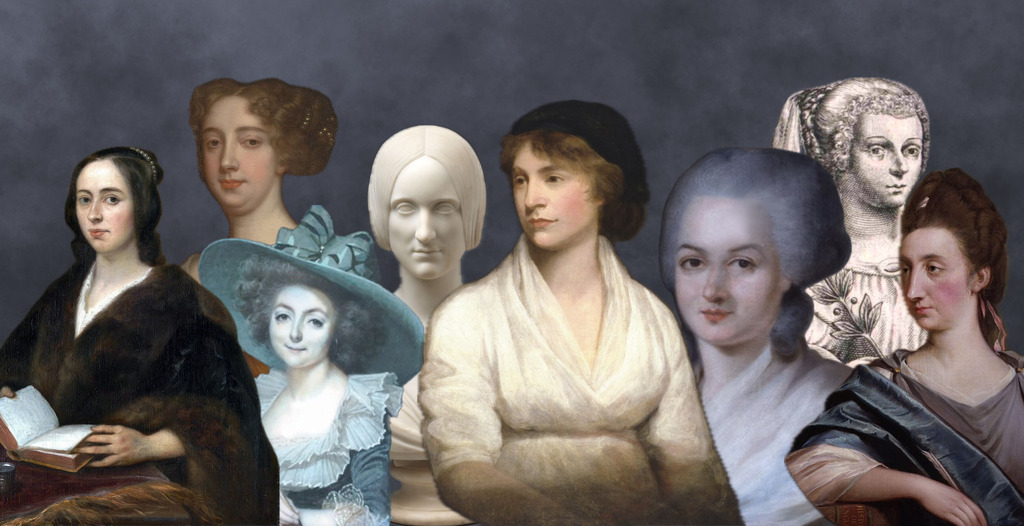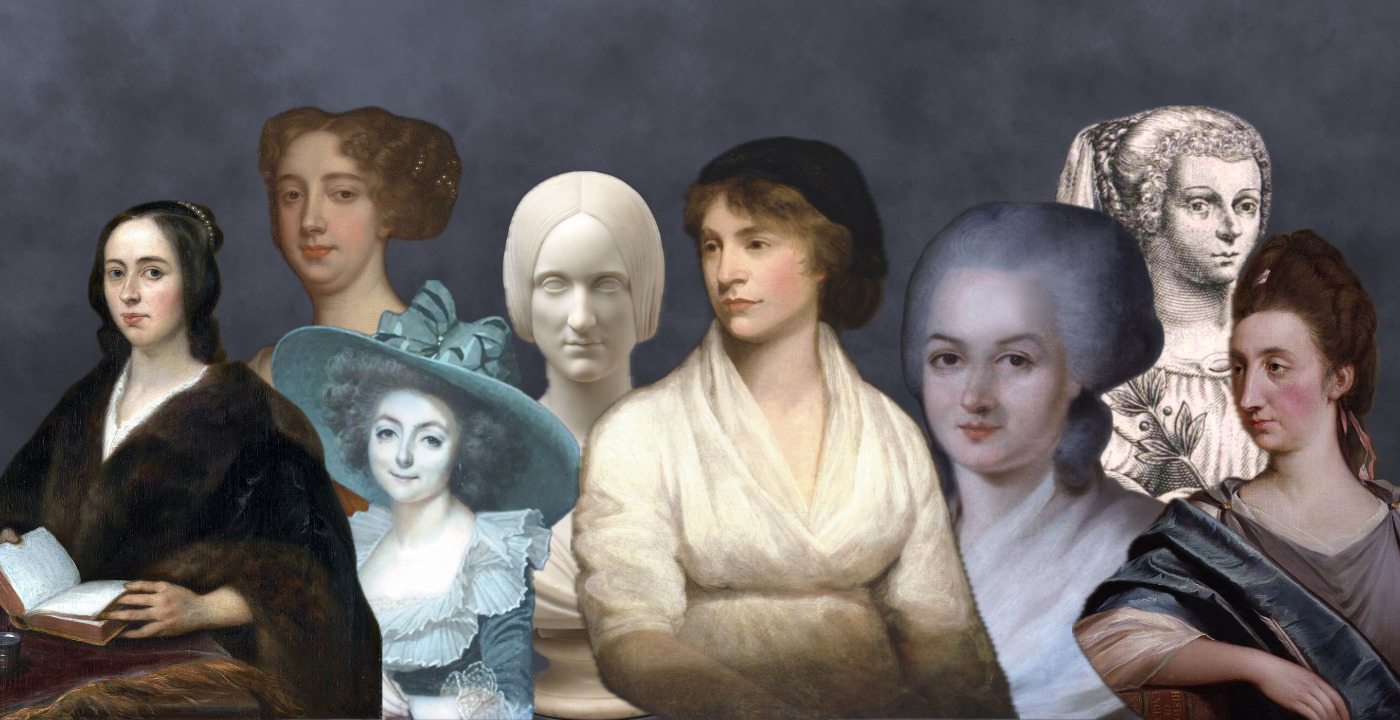September 10th was the 228th anniversary of Mary Wollstonecraft’s death. She died of complications from childbirth, a common occurrence in the 18th century. The daughter to whom she gave birth eleven days earlier grew up to become a famous writer: Mary Shelley, the author of Frankenstein.
Wollstonecraft was a well-known author, too. In her brief life (she died at 38), she wrote works of fiction, essays, letters, literary reviews, a travel memoir, works on education, and, of course, political treatises. She is best known for her 1792 text, A Vindication of the Rights of Woman, and for another political treatise she authored two years earlier: A Vindication of the Rights of Men, a criticism of Edmund Burke’s defense of aristocracy in his Reflections on the Revolution in France. Both works–but especially the VRW–have led to her being celebrated as the “first feminist”: a trailblazer, a pioneer of the women’s movement who laid the foundation for women’s rights. Certainly, Wollstonecraft deserves praise for her feminist insights. But, as several scholars have pointed out over the last decades, this image of Wollstonecraft as a lone maverick could (and did) simultaneously serve to sideline the work of her contemporaries, such as Catharine Macaulay, Olympe de Gouge, and Sophie de Grouchy, who also argued for women’s political equality with men, and, consequently, for equal rights. Furthermore, other thinkers before Wollstonecraft’s time, such as Aphra Behn or Judith Drake, might plausibly be thought of as having planted the first seeds for women’s rights.
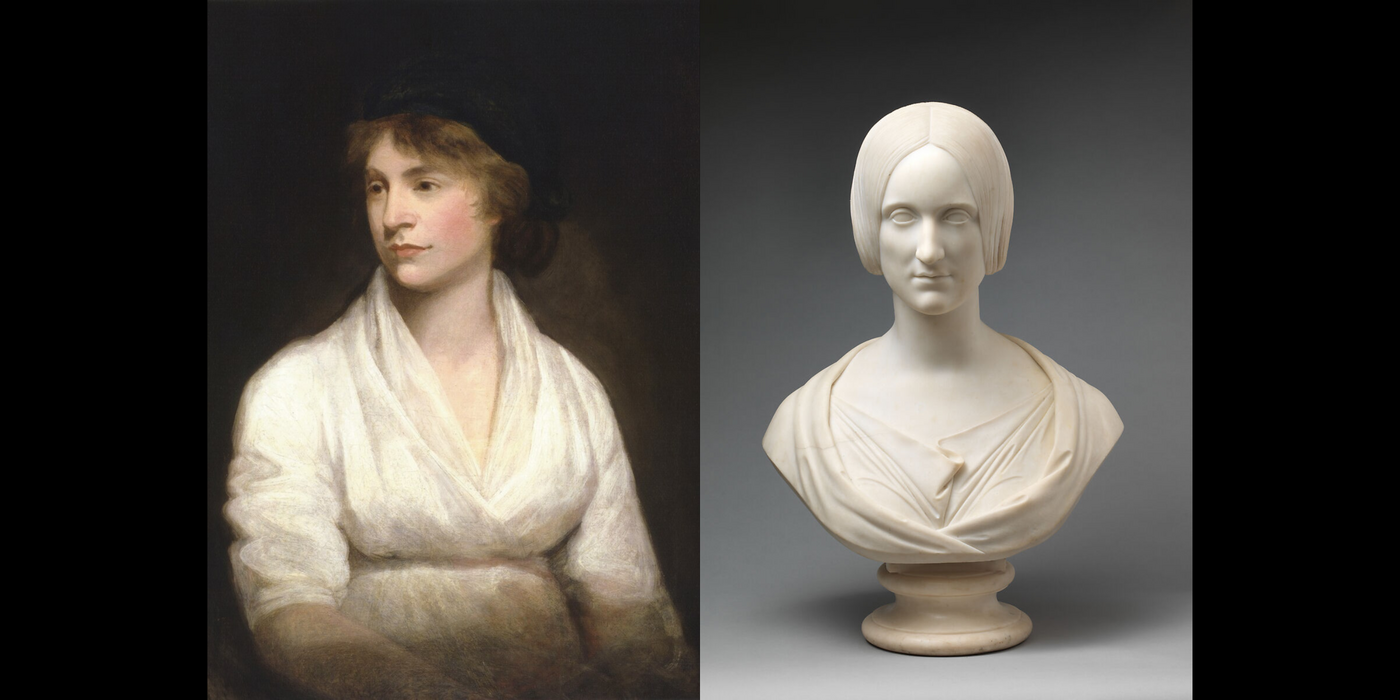
Surely these scholars are correct to note that Wollstonecraft’s arguments for women’s rights did not arise ex nihilo. Her views need to be understood within a broader context that includes the work of others calling for these rights. But her views need to be understood within a broader philosophical context as well. As a historian of philosophy whose work aims to show the contributions early modern women have made to that history, I see Wollstonecraft’s status as the “first feminist” as inviting us to consider another, distinct question: what other conceptual tools–apart from the notion of political rights–did feminists use to call out woman’s unjust exclusion from the fullness of human life?
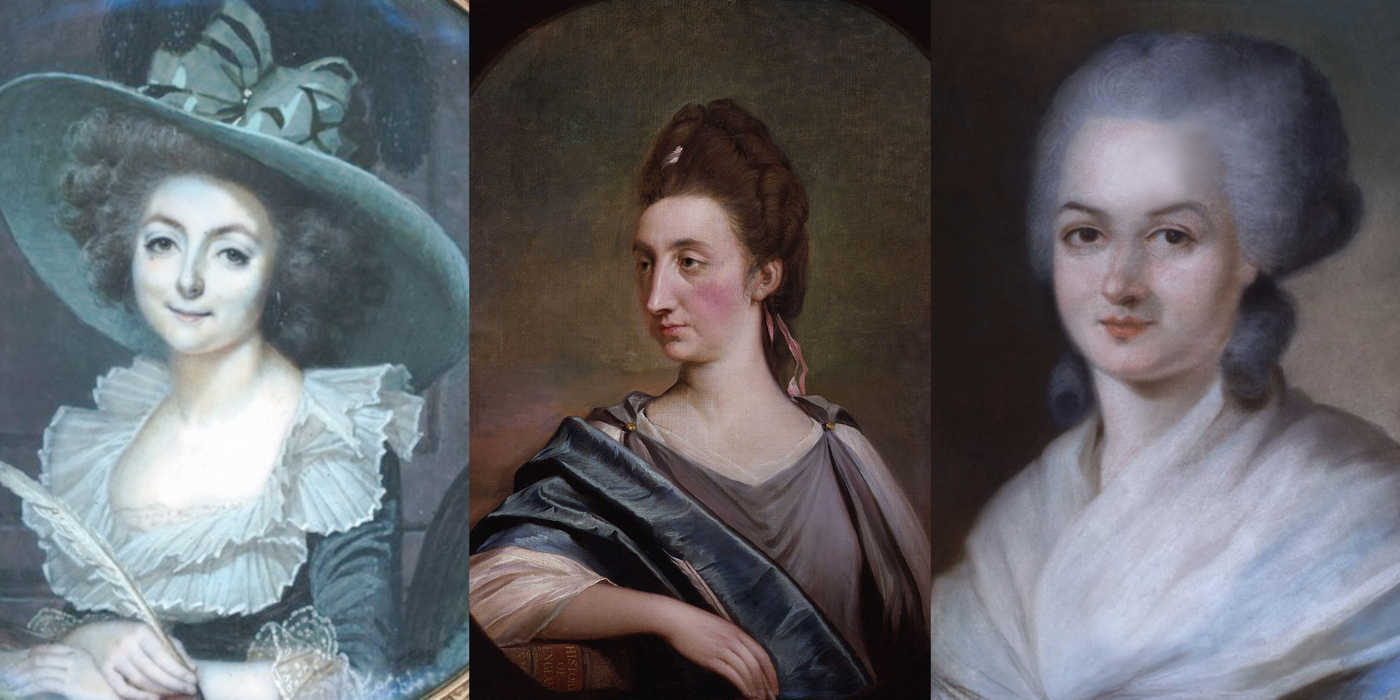
Part of what Wollstonecraft was trying to do in her two Vindications was to offer a justification for a certain understanding of what it meant to be human, namely, a natural rights philosophy. But other feminists in other periods relied on other conceptual apparatuses to do that work. Scripture, perhaps surprisingly, was a tool used by some thinkers to advance feminist aims. For example, after discussing several Biblical passages typically cited by misogynists to support their negative views about women, Mary Astell, writing a century before Wollstonecraft, argues that these very passages, in fact, support women’s equality with men. She concludes by noting:
More might be said, but one would think here is enough to show that whatever other great and wise reasons men may have for despising women and keeping them in ignorance and slavery, it can’t be from their having learnt to do so in Holy Scripture. The Bible is for, and not against us, and cannot without great violence done to it, be urged to our prejudice. (Some Reflections upon Marriage)
Astell was not, in fact, a fan of the rights-based notion of human beings advanced in her day by John Locke and cultivated by Wollstonecraft in her two Vindications. Instead, Astell grounds her feminism in the idea that humans must fulfill the purpose for which God created them, namely, to unfold their intellects in preparation for an afterlife.
Several other writers of the 17th century argued for women’s equality with men by undermining the claim that women were naturally intellectually inferior to men. These thinkers–Anna Maria van Schurman and Marie le Jars de Gournay, to name just two–advanced their feminism by calling out the epistemic injustice women suffered insofar as they were denied the status of knowers. How were they denied this status? In many ways, but primarily by being blocked from participating in intellectual life–at universities, in scholarly societies, in public discourse. These thinkers showed that epistemic injustice strips women of their standing as knowers–as givers of knowledge–or significantly undermines them in this capacity; therefore, it wrongs women by undermining them in a capacity that is essential to human value.
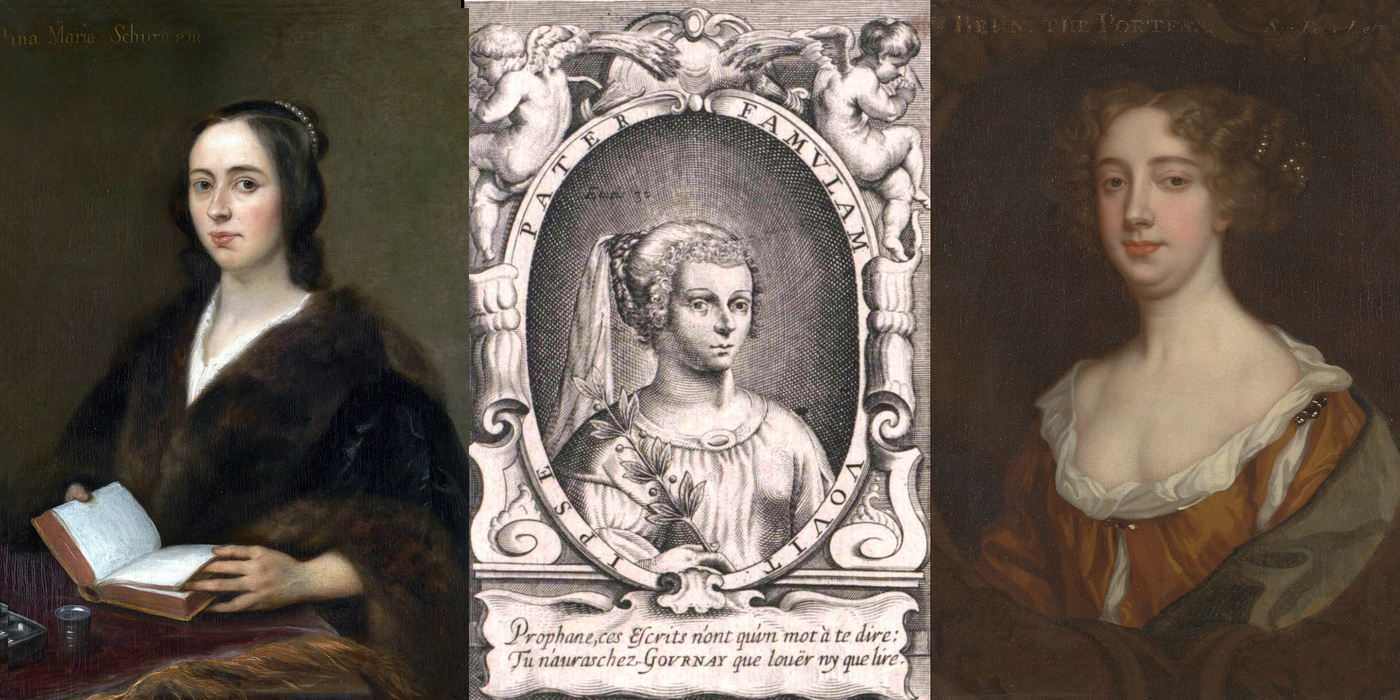
What connects Wollstonecraft, Astell, van Schurman, and Gournay to each other–despite the very different conceptual tools they use (natural rights, scripture, and epistemic status)–is their insistence that women not be prohibited from partaking of the fullness of human life. This is what makes them all feminists.
Nancy Kendrick is Professor Emerita of Philosophy at Wheaton College, Norton, MA, and Philosopher-in-Residence at The New Historia.
